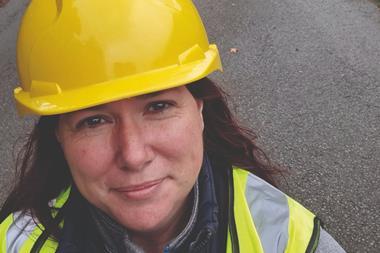Homes England’s recent allocation of funds under the Affordable Housing Programme will be music to the ears of many registered providers (RPs).

Not only will it provide the funds to build homes in areas that really need them, but the condition that 25% of the funding must be used for modern methods of construction (MMC) is a step in the right direction for the sector and environment. There is now the remaining challenge of practical implementation.
There is a great deal of enthusiasm for MMC within both government and industry, but this remains a relatively new area, with norms and ways of working still evolving. RPs will now be coming under pressure to deliver sites and meet housing targets via MMC, yet not all of them will have experience in this area and the industry-wide standards that could offer guidance are still a work in progress. If we are to see a long-term shift to more innovative and more sustainable construction methods for affordable housing, it is important to give RPs the right support to manage this effectively. For example, we need greater clarity around what an RP should expect from the manufacturer, the process itself and what the specification of the product should be.
The payment structure for many modular suppliers is different from a traditional build, so RPs are understandably nervous about the hefty up-front payments that they must make to manufacturers before a product is delivered. The cost of obtaining bonds has risen exponentially – making them unreachable – meaning other structures need to be put in place to protect payments and create the same security as a bond. Some may be looking to Homes England to provide a guarantee for the up-front payments in order to unlock the use of MMC.
Further to this, market indications show that many of the main modular suppliers are reaching (or have reached) full capacity, demonstrating the lack of strong smaller suppliers to take up the slack. Some larger suppliers have stopped accepting smaller orders, with many in the 500-unit order plus market. There needs to be investment in smaller sites and RPs, to ensure an adequate amount of MMC suppliers for them.
The process itself needs to become as modern as its construction methods, with faster digitalisation decreasing manufacturing time and making the method more economical overall.
Another hurdle RPs must overcome is the way they acquire land. Usually, they do so via package deals whereby a smaller developer brings them a site, which is then built out. RPs will require developers to make these sites MMC rather than traditional builds, and SMEs may struggle to have the relevant connections or knowledge to carry this out. In addition, sites that already have planning permission for a traditional build may not accommodate a switch to an MMC build.
MMC is here to stay, and forward-thinking RPs are already teaming up with procurement and industry experts to fully explore the opportunities this offers. This is the moment to share knowledge and build fruitful long-term partnerships – and ultimately tackle the UK’s housing crisis.
Sarah Hale is partner at UK law firm TLT
































1 Readers' comment